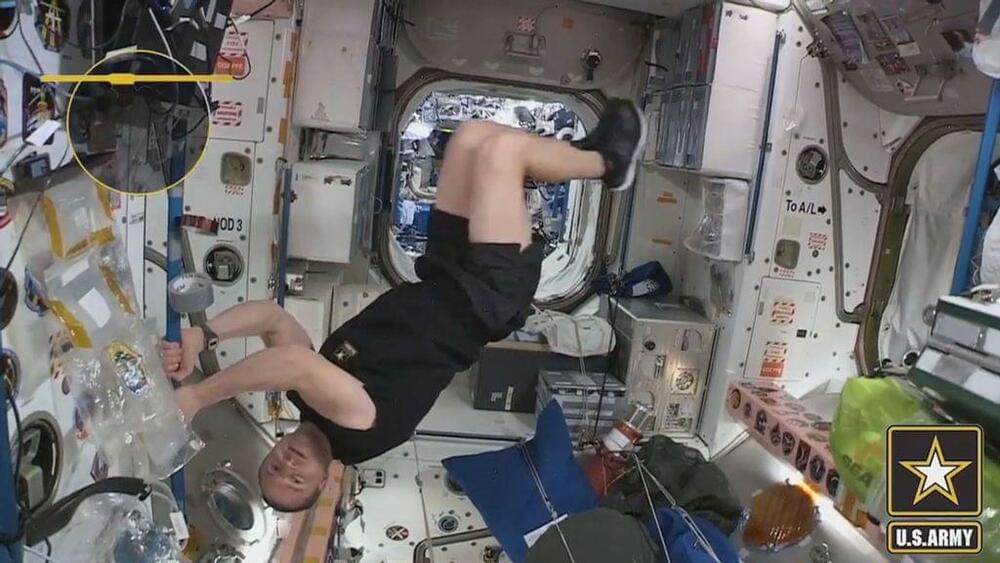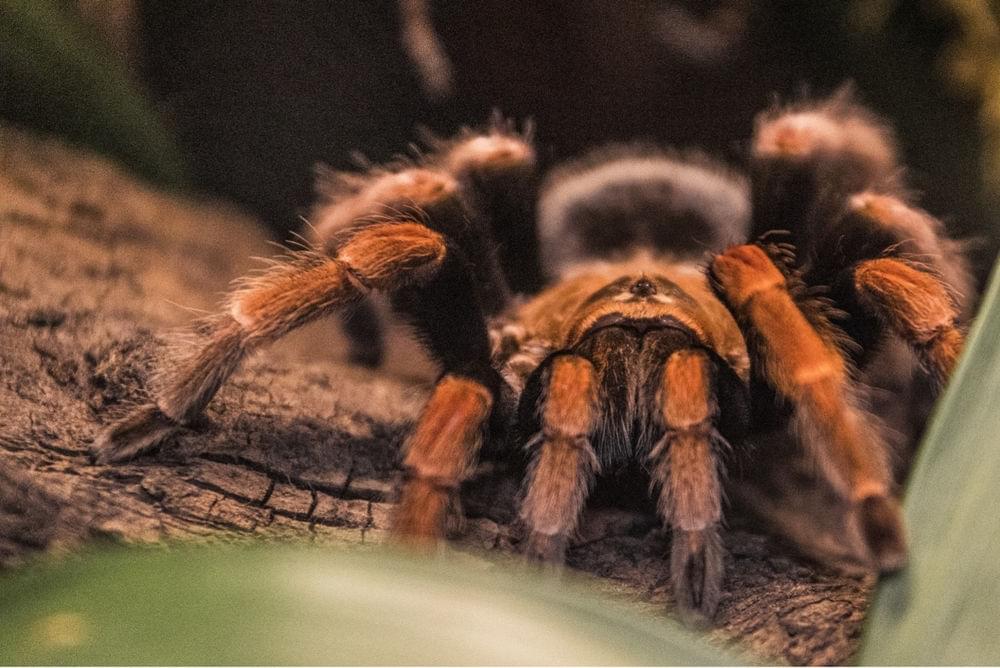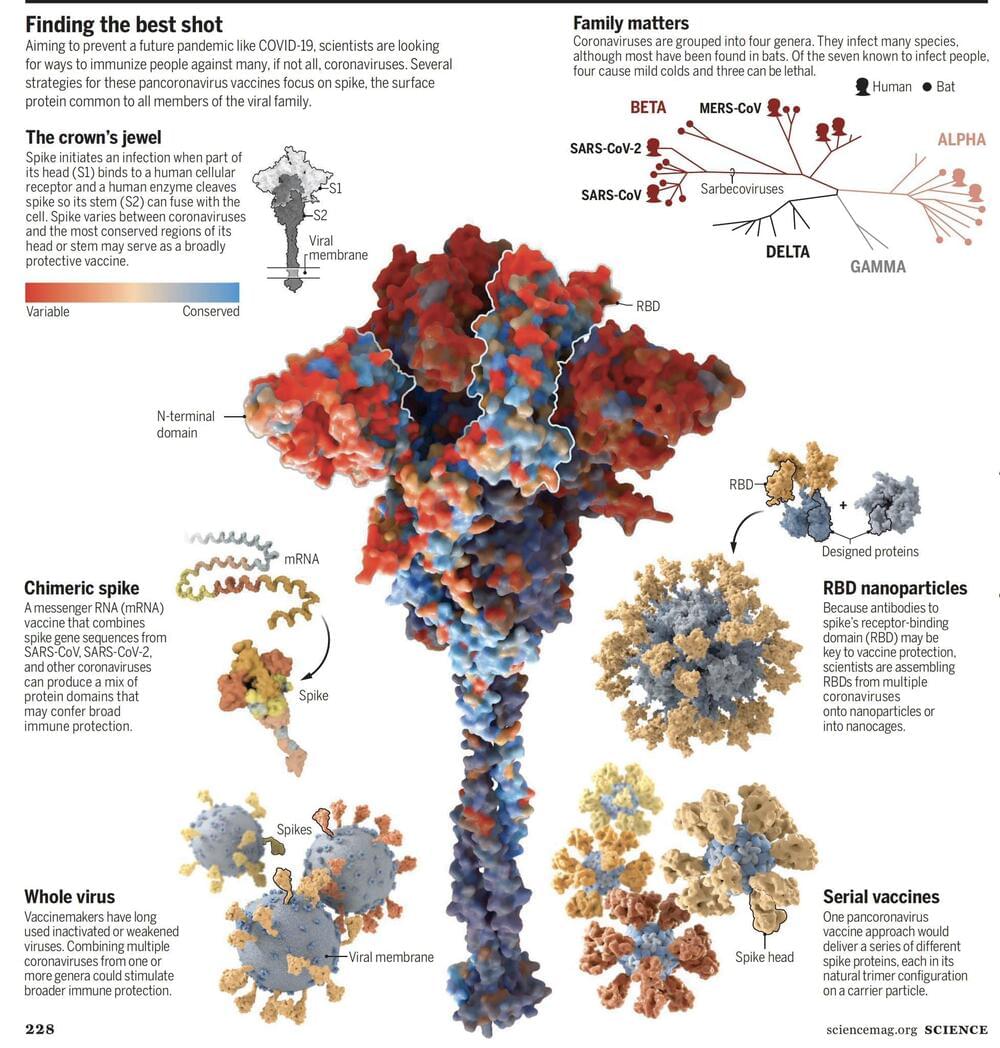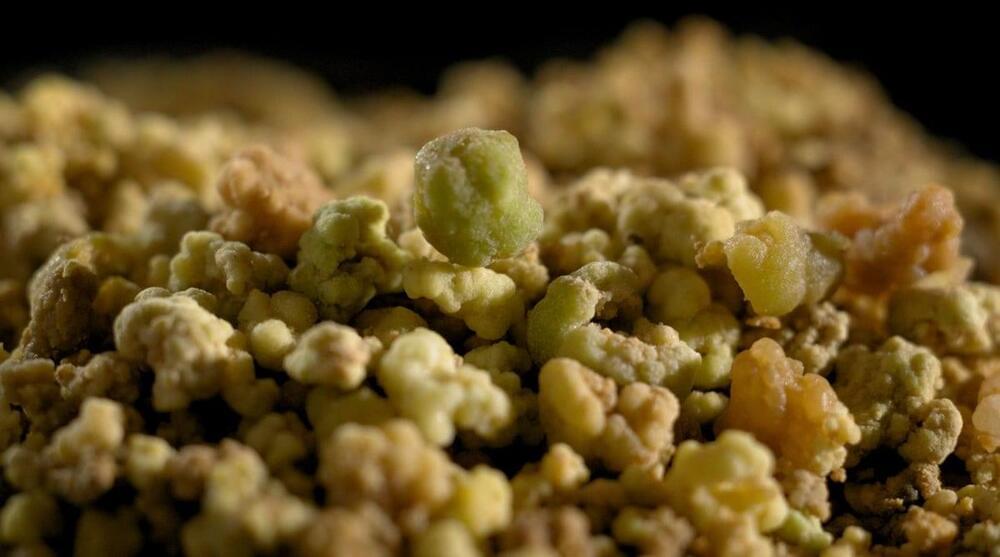Page 5500
Dec 9, 2021
The Most Realistic Humanoid Robot Yet (Ameca Robot)
Posted by Sean Brazell in categories: business, media & arts, robotics/AI

Become smarter in 5 minutes by signing up for free today: https://cen.yt/mbcoldfusion12
Previous GPT-3 Episode: https://www.youtube.com/watch?v=Te5rOTcE4J4
Continue reading “The Most Realistic Humanoid Robot Yet (Ameca Robot)” »
Dec 9, 2021
With Cyber-Spirituality on the Rise in Silicon Valley, Will the Rest of the World Eventually Embrace It, Too?
Posted by Alex Vikoulov in categories: internet, singularity
I was recently interviewed by Magda Gacyk, San Francisco-based correspondent for Wyborcza, the most prestigious daily newspaper in Poland (akin to New York Times in the U.S.) and her article, that can be loosely translated “Prophecies of the Tech Spirituality: A New Gospel of Silicon Valley,” appeared in the last Saturday issue of November. Here’s our conversation…
#CyberSpirituality #SiliconValley #Singularity #Metaverse #Theogenesis #Cybergods #Cybertheism
“I do believe we are in the midst of a transition — intimated by the Internet — towards a more collective thinking, where the individual…
Dec 9, 2021
We Asked a NASA Expert: How Did Perseverance Mars Rover Pick Its Landing Spot? [Video]
Posted by Genevieve Klien in category: alien life
How did NASA’s Perseverance Mars rover pick its exact landing spot? Believe it or not, the Mars rover decided precisely where to land just moments before it touched down. It’s thanks to the work of engineers like NASA’s Jet Propulsion Laboratory’s Swati Mohan and new technology called Terrain…
Mars rover pick its exact landing spot? Believe it or not, the Mars rover decided precisely where to land just moments before it touched down. It’s thanks to the work of engineers like NASA’s Jet Propulsion Laboratory’s Swati Mohan and new technology called Terrain Relative Navigation.
When NASA decides to send a rover to Mars, a whole group of experts gets together to figure out where it needs to go for the best science for that mission. Perseverance’s mission was to find the signs of past life on Mars. So, all the experts got together and picked Jezero crater.
Dec 9, 2021
Study reveals why astronauts age faster in space
Posted by Genevieve Klien in categories: biotech/medical, futurism
It’s long been known that exposure to radiation damages DNA, but a new study has found an additional risk for astronauts: DNA replication is more prone to errors in microgravity.
Scientists tested whether enzymes accurately copy DNA in cells during microgravity — the weightlessness produced during the freefall of a jet on a parabolic flight pattern. When the so-called “vomit comet” descends more than 2 miles in 20 seconds, the near-weightlessness replicates conditions in space. Accurate DNA replication in space is crucial for astronauts and the future of space travel.
“So-called DNA polymerases are essential enzymes that copy and repair DNA. Inevitably, they aren’t perfect: even under optimal conditions, they sometimes make mistakes. Here, we show that DNA polymerases derived from the bacterium E. coli are considerably more prone to errors under microgravity, such as occurs in space,” said Aaron Rosenstein of the University of Toronto, corresponding author of the study published in Frontiers in Cell and Developmental Biology.
Dec 9, 2021
The Science of Aliens, Part 7: How Would WE React to Discovering Alien Life
Posted by Dirk Schulze-Makuch in categories: alien life, science
What the discovery of alien life means for our human society. For more info, see.
Ready or not, this discovery is likely to happen soon. In anticipation of discovering alien life, conferences have been held on what such a discovery would mean for humanity. But how would we as humans react to this discovery? That reaction would depend on how advanced the alien life is and whether it would be considered a danger to us. Let´s start with the possibility that we find microbial life on another planet. In a seminal paper published in Frontiers of Psychology, a team of scientists led by Jung Kwon from Arizona State University reported that people would react more positively than negatively to discovering alien life. They partially based their findings on how people reacted to the announcement of fossil life in the Martian meteorite ALH84001, which created excitement in the scientific community (the discovery itself, however, has remained controversial till today and it is unclear whether it is evidence for the existence of past life on Mars).
Dec 9, 2021
If there ever was a time to turn the “dream” vaccine into the reality one, this is it
Posted by Poopeh Morakkabati in category: biotech/medical
The pan-coronavirus one that’s variant-proof.
Science.org/doi/full/10.11… See more.
COVID-19 vaccines go through many tests for safety and effectiveness and are then monitored closely.
Dec 9, 2021
U.S. begins the production of its updated B61-12 nuclear bomb
Posted by Chima Wisdom in category: military
America’s newest air-dropped nuclear weapon variant has entered production. The U.S. Department of Energy’s National Nuclear Security Administration (NNSA) announced that on November 23, it had successfully completed the first production units of the B61-12 Life Extension Program (LEP), an updated version of the warhead used on weapons dropped from fighters and bombers. This paves the way to create an estimated 480 of the weapons, which will homogenize four existing variants of the bomb.
The B61-12 LEP helps modernize America’s nuclear weapons stockpile and sustain the Nation’s air-delivered nuclear deterrent capability. The nuclear security enterprise and the U.S. Air Force worked together to deliver the B61-12 FPU after more than nine years of design, development, qualification, and component production.
Deployed from U.S. Air Force and North Atlantic Treaty Organization (NATO) bases, the B61 nuclear gravity bomb has been in service for over 50 years. Since the first B61 entered services in 1968, many modifications have been made to improve the B61’s safety, security, and reliability. Currently, there are four B61 variants remain in the stockpile: the 3, 4, 7, and 11. The B61-12 will replace the B61-3, 4, and 7.
Dec 9, 2021
DHS eyes Chinese airline employees suspected of spying
Posted by Raphael Ramos in categories: mobile phones, security, transportation
DHS is taking action due to reports of spying and these airlines being used to capture and threaten US based individuals. It was also mentioned that personnel from these airlines are using their phones and other electronic equipment to record interviews, CBP operational procedures and questions during inspections.
Read article for more details.
Crew members of a Chinese state commercial airline are suspected of spying at U.S. airports, according to a Department of Homeland Security intelligence bulletin obtained by Yahoo News.
Continue reading “DHS eyes Chinese airline employees suspected of spying” »
Dec 9, 2021
Producing Cannabis Biomass Without Growing A Cannabis Plant: How One Company Is Doing It
Posted by Omuterema Akhahenda in categories: biotech/medical, food, genetics
A new technology is allowing one company to produce full-spectrum cannabis without growing the plant itself.
Sounds like something out of a science fiction movie, but it’s very real. In what could be a global first, this week, a publicly traded Canadian-Israeli biotech firm company, BioHarvest Sciences, will announce that it has managed to produce at least 10kg of full-spectrum cannabis without the plant itself.
According to information procured exclusively, the biomass in question was created using the company’s proprietary BioFarming technology platform, which allows it to grow natural plant cells in bioreactors. In addition, management assures, the product is not genetically modified, and is “uniquely consistent and clean.” This could provide an interesting solution to two of the cannabis industry’s main pain points: product variability and contamination — the aseptic, controlled environment means the product isn’t affected by fungi, yeast, mold or any other contaminants or pesticides.
















